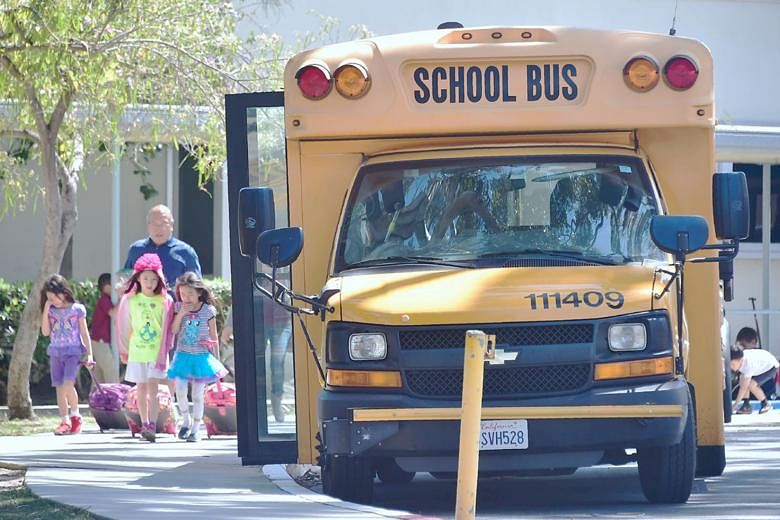BOSTON • Every morning, I stand behind the metal detectors, searching bags as students enter the school.
They come clutching iced coffee and bags of chips, their faces burned by the wind. Sometimes, they raise a hand in greeting, but mostly, they look off into the distance, bobbing their heads to the music in their earbuds.
I am an administrator at a public high school in Boston, serving almost entirely low-income black and Latino students, and that means every morning, I am the white guy at the metal detector telling them they are suspected of a crime as they walk into their school.
I've been an educator in urban schools for over a decade. There are mornings when I imagine a different life, one where I take the train downtown and sit at a desk, actually sit, for 15 minutes over the course of a day. But it is just a passing thought. I keep on going to school because I believe in the work, which is another way of saying I believe in the kids. And then I arrive, and I see their faces framed by metal detectors.
There are metal detectors at the entrance of nearly every public high school in Boston - I imagine it's the same in most major cities. Last year, when I started working at this school as part of a new administration, we were determined not to use them. We made it until October, when a student brought a knife to school.
He was a gentle kid, a ninth grader, and he said he'd brought the knife only because some guys in his neighbourhood were harassing him on the way to school and he needed to protect himself. But our first job is to keep the school safe, and so we asked the district for metal detectors, which arrived before 7 the next morning. I had never seen anything arrive so promptly from the district. Textbook orders take months.

At first, we didn't know how to use them, but we figured it out through trial and error. Set them up too close to the door and the kids have to wait outside in the rain. You need a table for their bags, but if you put it too close to the detectors, the alarm will keep going off. You need people to check the bags, people to run the wand over students who set off the alarm, people to ask kids to empty their pockets, and then to ask them to try again. People like me.
As a student in rural New Hampshire, I never had to enter my high school through metal detectors. It was a concrete monolith with a vocational centre and auto shop in one wing, where everyone was white, only a handful of kids were on the college track, and nobody was made to feel like a criminal.
The reality for my students is different. They have been followed through stores, had people roll up their car windows or cross the street when they approach. So perhaps they are unsurprised by the metal detectors.
I try to tell myself none of this is within my control. I think of our school's work to design courses around diverse texts, hire teachers who reflect our students' cultures and connect kids with opportunities like internships - how we welcome all students with the promise that we will not rest until they achieve their potential.
But I see how their body language shifts when they walk through metal detectors, some wrapping their arms around themselves and others throwing their heads back in defiance. I see how they fixate on their phone screens or scarves, anything to avoid meeting my gaze. In that moment, there is no denying I am part of the machine.
Still, the only way my kids will make their way through this world is armed with an education, which means they have to enter the building. This means every morning, I try to disrupt the narrative the only way I know how: by greeting them by name, asking about last night's game, about their families, their plans for next weekend and for college.
Sometimes, when I'm searching through bags, I see a book and ask a student how she likes it, what else she reads, and then maybe I recommend an author to check out. Sometimes she says "thanks". But I wonder what she is really thinking as I zip the bag back up, hand it back and try to catch her eye as I say, "Good morning, welcome to school. I'm glad you're here".
NYTIMES
- The writer is director of instruction at the Henderson Inclusion School in Boston and at work on a novel drawing on his experience as an educator in urban schools.

